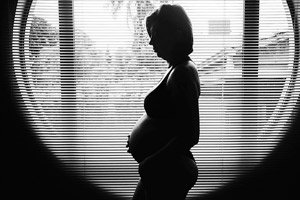
All iLive content is medically reviewed or fact checked to ensure as much factual accuracy as possible.
We have strict sourcing guidelines and only link to reputable media sites, academic research institutions and, whenever possible, medically peer reviewed studies. Note that the numbers in parentheses ([1], [2], etc.) are clickable links to these studies.
If you feel that any of our content is inaccurate, out-of-date, or otherwise questionable, please select it and press Ctrl + Enter.
Causes that trigger miscarriages have been discovered
Last reviewed: 01.07.2025
 ">
">Scientists have discovered molecular signals that control the body's acceptance of a fetus and found that in women who have had multiple unsuccessful attempts to conceive, these molecular signals malfunction.
Researchers from Imperial College London and the University of Warwick suggest that these molecular signals could be corrected with drugs, which could offer a lifesaver for women who are trying to conceive but whose pregnancies repeatedly end in miscarriage.
Currently, scientists know only a few details about the biological processes that control when an embryo implants in the uterine lining, but they hope that the results of this study will help to learn more about these processes.
In the latest study, published in the scientific journal PLoS ONE, the researchers examined chemical signals produced by human cells taken from the uterine lining that they had grown artificially in the lab. They found that a key role in this process was played by a molecule called IL-33, which the cells secrete during the receptive phase and which influences the activity of neighboring cells.
Typically, the effects of IL-33 and other chemical signals on the uterine lining are short-lived. It is these chemical signals that help a woman become pregnant over a period of time.
High levels of IL-33 were detected in cells from women who had suffered three or more miscarriages. These molecules continued to be produced for ten days, indicating that the receptivity of the uterus in these women was not properly controlled.
Scientists conducted a study on mice and came to the conclusion that women who have had several miscarriages have more time to become pregnant, but at the same time, the likelihood of miscarriage also increases.
Research conducted by scientists has shown that a long "fertility window" increases the risk of miscarriage. In addition, experts associate this with inflammation of the uterine lining, which threatens the development of a healthy embryo in the womb.
Dr Madhuri Salker, lead author of the study and professor at Imperial College London, said: "Our research suggests that in women who have had multiple miscarriages, the mechanisms that control the uterus may be disrupted, which can be a major barrier to normal pregnancy."
The molecular signals they discovered may be involved in a range of diseases, including Alzheimer's, asthma and heart disease, the researchers said.
Experts hope that properly targeting these molecules could help develop new treatment strategies, as well as new drugs that could help prevent miscarriages.
